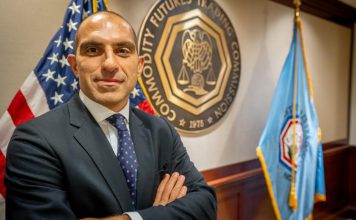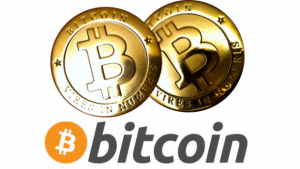CFTC Chairman Calls for Overhaul of Crypto Regulation Bill

During testimony at a hearing held by the Senate Agriculture Committee, CFTC Chairman Rostin Behnam called for an overhaul of the Digital Commodities Consumer Protection Act (DCCPA) to eliminate any possible gaps.
The DCCPA is co-sponsored by Debbie Stabenow (D-MR) and John Boozman (R-AR). Once supported by former FTX CEO Sam Bankman-Fried, the bill would give the CFTC the authority to regulate crypto exchanges like FTX.
The DCCPA aims to ban mixing of corporate and customer funds, which was allegedly a problem on FTX. As much as $2 billion in customer funds were locked on the FTX exchange platform when it suspended deposits and withdrawals and declared bankruptcy. FTX and Sam Bankman-Fried’s other company, Alameda Research, allegedly gambled with user funds – and lost.
Behman asks Congress to give the CFTC authority to regulate crypto exchanges
During his appearance before the Senate Agriculture Committee, Behnam suggested that the CFTC could have done a better job of addressing the conditions that led to FTX’s collapse if it had greater authority to regulate digital asset exchanges. He says the CFTC currently relies on tips from whistleblowers, which he said was unhealthy.
“We need registration of exchanges. We need surveillance of market activity. We need direct relationships with custodians who are holding customer money so that we can prohibit and prevent money moving around,” he said.
But which cryptocurrencies should be considered commodities? Previously, Behnam made comments implying that Bitcoin and Ethereum could be commodities. He has since walked that back in an appearance at a Princeton University event, saying that bitcoin may be the only true commodity in the digital asset world. It makes a difference because the Commodity Futures Trading Commission (CFTC) is responsible for regulating commodity markets.
The Securities and Exchange Commission (SEC) regulates anything that can pass the Howey Test, and therefore qualifies as a security. The Howey Test is a reference to a legal case called SEC vs. Howey, which reached the Supreme Court in 1946. It laid out a definition of an investment contract that the SEC still uses.
Bankman-Fried’s courting of regulators may be worth scrutinizing
Bankman-Fried once courted regulators and seemed especially focused on the CFTC. Senior FTX executives had been communicating and sometimes meeting with CFTC officials about a proposed leverage trading product that would have cut out brokers if the CFTC approved it. The leverage trading product would have been available on FTX subsidiary LedgerX.
Behnam admitted that Bankman-Fried had met directly with him at least ten times in the past 14 months. However, he claims that the proposed leverage trading product was nowhere close to being approved.
One likely explanation was that Bankman-Fried regarded the CFTC as more friendly toward crypto businesses than the SEC even though both have pursued enforcement actions against organizations that they alleged had violated regulations. The SEC does seem to make the news with enforcement actions more often, likely because they go after more high-profile organizations.
Crypto investors have closely watched an SEC-file court case against Ripple that has gone on for nearly two years now, for instance. The SEC alleges that Ripple and its co-founders conducted an unregistered securities sale when they sold $1.3 billion in XRP tokens.
And the CFTC? It goes after organizations that you may not hear about very often otherwise, like Ooki DAO. It alleges that Ooki DAO failed to register as a Futures Commission Merchant. If the CFTC wins that case, it could set the precedent that voting participants of a DAO can be held liable for regulatory violations.
So Sam Bankman-Fried may have made an incorrect guess. However, it could explain why he focused on the CFTC in particular as he pursued his plans for direct leverage trading on LedgerX.
Other organizations that are regulated by the CFTC, like the Chicago Mercantile Exchange (CME), thought CFTC officials’ seemingly supportive attitude about it was strange at best. Chicago Mercantile Exchange CEO Terry Duffy says they defended FTX’s proposal in conversations on the topic. Duffy threatened to file a lawsuit if the CFTC approved the proposal.
“I’ve been [going to] Congress for 25 years — I’ve never seen a Washington, D.C., like I saw that time, from the regulators to the members of Congress, singing hymns that I’d never heard before,” he told the hosts of the On The Tape podcast when discussing FTX.
Crypto insiders could have also considered that unusual behavior from familiar D.C. personalities. They are used to prominent politicians and financial regulators criticizing the digital asset community, sometimes unfairly focusing on crypto and not paying the same level of attention to similar sins committed by the mainstream financial industry.
“There are bad players in all industries. [Bernie] Madoff happened in a very regulated Wall Street traditional finance industry. So these things happen. Just because there’s one Madoff doesn’t mean you shut down all the other banks,” Binance CEO Changpeng Zhao told FOX’s Varney & Co.
Sam Bankman-Fried donated to mostly Democrat politicians
Bankman-Fried wasn’t just meeting with regulators. He was also throwing money at politicians who were running for office – mostly Democrats. During the 2022 midterm election season, he made $40 million in political donations, mostly to the Democrat PACs and campaigns for public office. Some politicians who received donations from Bankman-Fried say they regifted the donations.
Senator Dick Durbin (D-IL) said he planned to donate the $2,900 he received from Bankman-Fried to “an appropriate charity,” though he has not specified which charity he was going to donate to – if any. Senator Kirsten Gillibrand (D-NY) said she would donate the $16,600 she received to a Bronx-based charity, Ariva Inc., which aims to support economic development in low-income communities.
Why would anyone make $40 million in donations to prop up politicians’ campaigns? Policy. As previously mentioned, Sam Bankman-Fried was a strong supporter of the DCCPA, which he may have even helped craft.
Reactions from other crypto CEOs like Changpeng Zhao was not good. Bankman-Fried got accused of attempting to turn regulatory agencies into weapons that he could use against competitors. Zhao alledged that Bankman-Fried had engaged in lowkey lobbying against competitors.
However, a Reuters report indicated that Binance had been attempting to skate around U.S. and U.K. regulation anyway. So it could be a case of someone not appreciating that he might be the next crypto industry bigwig to get caught in regulators’ crosshairs.
Changpeng Zhao briefly considered acquiring FTX, a company that Binance had invested in at the start before selling its stake. He said in a tweet thread that he preferred collaboration. However, he backed out of the acquisition, sending FTX into a scramble for alternatives and then bankruptcy.
Sam Bankman-Fried blisters regulators and other exchange chiefs blister him
After FTX’s collapse, Sam Bankman-Fried admitted to a Vox reporter that his courting of regulators and talk of ethics was mostly PR.
“They make everything worse,” he said, referring to regulators.
Binance CEO Changpeng Zhao (“CZ”) denied having caused FTX’s problems when he announced that Binance was going to liquidate its FTT holdings. FTT was FTX’s native token, which could be used for perks like discounts on trading fees on the FTX exchange.
CZ said the resulting collapse in FTT’s value was more likely to have been the straw that broke FTX’s back – and probably Alameda Research’s too, considering that it had billions of dollars in FTT on its books when the whole thing disintegrated.
“I can tweet about a different company, and they will be fine if the company itself is fine,” CZ said during an appearance on FOX’s Varney & CO.
Rostin Behnam made his appearance before the Senate Agriculture Committee, asking Congress for greater authority to regulate crypto exchanges in the wake of the FTX meltdown. However, his previous relationship with Sam Bankman-Fried might have been a little too close for comfort. If you would like to express your opinion on the Digital Commodities Consumer Protection Act, be sure to find out how to contact your representative at House.gov or senator at Senate.gov.








